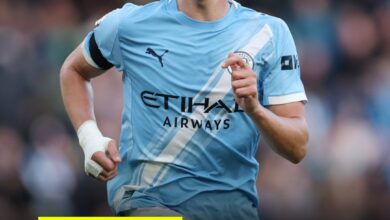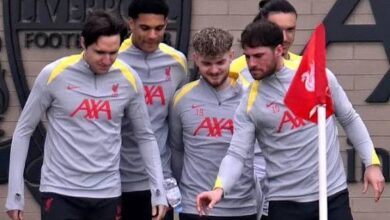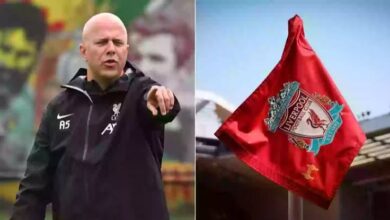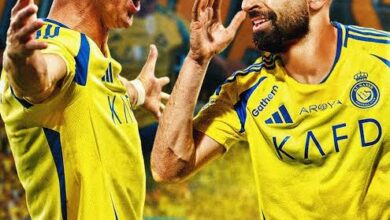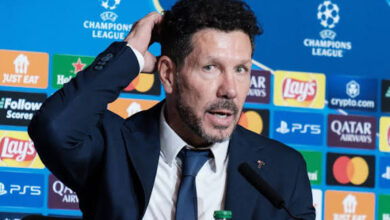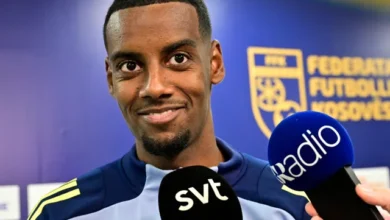Liverpool Transfer Analysis: Summer 2025 Window Deep Dive
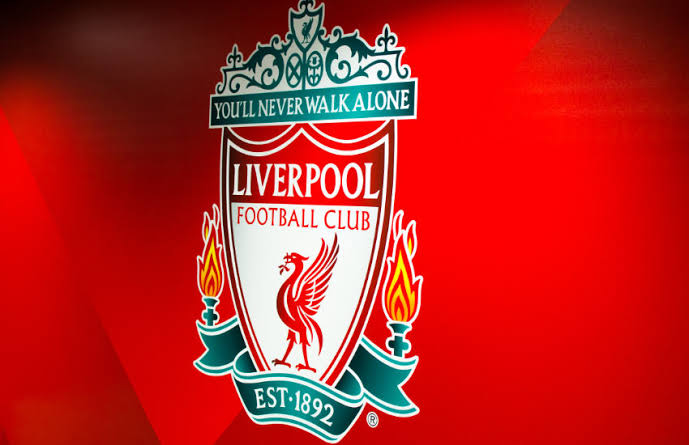
Liverpool Football Club enters the summer of 2025 as Premier League champions under Arne Slot’s guidance, marking their 20th top-flight title and setting the stage for one of the most ambitious transfer windows in recent memory. The Merseyside giants find themselves at a crossroads, balancing the euphoria of domestic success with the pressing need to strengthen their squad for sustained success across multiple competitions.
The current transfer window has already witnessed significant activity at Anfield, with the club making marquee signings while navigating complex negotiations for several high-profile targets. This comprehensive analysis examines Liverpool’s transfer strategy, key targets, completed deals, and the implications for the upcoming season
Liverpool’s most significant acquisition of the summer has been the record-breaking signing of Florian Wirtz from Bayer Leverkusen. This transfer represents not just a statement of intent but a fundamental shift in Liverpool’s transfer philosophy. The German playmaker, widely regarded as one of Europe’s most promising talents, brings technical excellence and creative flair that perfectly complements Slot’s tactical vision.
The financial commitment required to secure Wirtz’s signature demonstrates Liverpool’s willingness to compete at the highest level of the transfer market. This signing addresses a long-standing need for creativity in the final third, providing the kind of player who can unlock stubborn defenses and create opportunities in crucial matches.
The acquisition of Hugo Ekitike from Eintracht Frankfurt represents another significant investment in Liverpool’s attacking future. The French striker arrives with a growing reputation and the potential to develop into a world-class forward under Slot’s guidance. With reports suggesting the deal could exceed £80 million when all variables are considered, Liverpool has clearly identified Ekitike as a player capable of making an immediate impact while offering long-term value.
This signing addresses concerns about squad depth in attacking positions and provides healthy competition for established forwards. Ekitike’s pace, physicality, and finishing ability make him an ideal fit for Liverpool’s high-intensity style of play.
The pursuit of Alexander Isak has dominated Liverpool’s transfer headlines throughout the summer window. The Newcastle United striker has emerged as one of the Premier League’s most clinical finishers, making him an attractive proposition for clubs seeking to bolster their attacking options.
Recent developments suggest that Liverpool’s interest in Isak remains genuine and persistent. Reports indicate that the club is prepared to make a significant financial commitment, with figures suggesting a potential package worth up to £120 million. This would represent one of the largest transfers in Premier League history and demonstrate Liverpool’s ambition to secure top-tier talent.
Newcastle United’s position regarding Isak has been consistently firm throughout the summer. The Magpies view the Swedish international as a cornerstone of their project and have shown little willingness to entertain offers for their star striker. This stance reflects Newcastle’s own ambitions and their financial strength following recent ownership changes. The situation has been complicated by reports suggesting that Isak himself may be open to exploring new opportunities. This creates a delicate dynamic where Newcastle must balance their desire to retain their key player with the player’s own career aspirations.
Liverpool’s pursuit of Isak has not gone unnoticed by other elite clubs. Arsenal has been mentioned as another potential destination, creating a competitive environment that could drive up the eventual transfer fee. However, Liverpool’s recent Premier League success and Champions League participation may provide them with an advantage in any potential bidding war
The complexity of the Isak situation has led Liverpool to explore alternative options. The signing of Ekitike could be seen as either a complementary move or a potential backup plan should the Isak deal prove too complicated to complete. The departure of Trent Alexander-Arnold to Real Madrid represents one of the most significant losses for Liverpool this summer. The academy graduate’s decision to run down his contract and join the Spanish giants for a nominal fee of €10 million marks the end of an era at Anfield.
Alexander-Arnold’s departure creates both tactical and emotional challenges for Liverpool. His unique skill set as an attacking full-back made him integral to the team’s playing style, and his connection to the club as a local product added to his value beyond pure footballing considerations.
In contrast to Alexander-Arnold’s departure, Liverpool has secured the futures of Mohamed Salah and Virgil van Dijk with new contract extensions. Both players were entering the final year of their previous deals, creating uncertainty about their long-term commitment to the club.
Salah’s renewal ensures that Liverpool retains one of the Premier League’s most consistent goal threats. His partnership with new signings like Wirtz and Ekitike promises to create exciting attacking combinations for the upcoming season. Van Dijk’s decision to remain at Anfield provides stability at the heart of Liverpool’s defense. His leadership qualities and defensive excellence remain crucial to Liverpool’s ambitions across all competitions
Marc Guehi has emerged as a target for Liverpool as they seek to strengthen their defensive options. The Crystal Palace center-back has established himself as one of the Premier League’s most consistent defenders, attracting interest from several top clubs.
Palace’s position regarding Guehi reflects their desire to retain their key players while also acknowledging the financial realities of modern football. The club’s valuation of their England international creates a complex negotiation dynamic that Liverpool must navigate carefully. Guehi’s potential arrival would address Liverpool’s need for defensive depth and provide competition for established center-backs. His pace, composure, and ability to play out from the back align perfectly with Slot’s tactical preferences.
The pursuit of Guehi also reflects Liverpool’s long-term planning approach, recognizing the need to prepare for eventual transitions in key positions while maintaining competitive standards in the present. Luis Diaz’s future at Liverpool has become a subject of speculation following reported interest from Bayern Munich. The Colombian winger has been a key player for Liverpool since his arrival, but transfer speculation suggests that his position within the squad may not be entirely secure.Recent reports indicate that Liverpool rejected a substantial bid from Bayern Munich for Diaz’s services. This rejection demonstrates the club’s valuation of the player while also highlighting the interest he generates from elite European clubs. The speculation surrounding Diaz’s future affects Liverpool’s broader transfer strategy. Should the Colombian depart, it would create both financial resources and squad space that could be redirected toward other targets.
The club’s handling of the Diaz situation reflects their broader approach to player retention and squad building, balancing financial considerations with sporting ambitions. Liverpool’s transfer activity this summer reflects a more aggressive approach to squad building than in recent years. The significant investments in players like Wirtz and Ekitike demonstrate the club’s willingness to compete at the highest level of the transfer market.
This approach requires careful financial planning to ensure compliance with Financial Fair Play regulations while maximizing the squad’s competitive potential. The balance between incoming and outgoing transfers becomes crucial in this context. Arne Slot’s first season success has provided a platform for continued tactical development. The transfer targets and completed signings reflect his vision for how Liverpool should evolve as a team.
The emphasis on technical quality and creative players suggests a slight shift from the intense physicality that characterized previous Liverpool teams under Jurgen Klopp. This evolution requires players who can adapt to new tactical demands while maintaining the club’s competitive edge.
Liverpool’s approach to youth development has continued throughout the current transfer period. The January window saw several young players leave the club either permanently or on loan deals, reflecting the club’s commitment to providing development opportunities for emerging talents. These departures create space within the squad structure while ensuring that young players receive the playing time necessary for their development. The strategy reflects Liverpool’s long-term approach to talent management.
The summer signings create new opportunities for academy graduates to integrate with the first team. The club’s reputation for developing young talent remains strong, and the current transfer activity provides additional pathways for emerging players.
Liverpool’s transfer activity this summer positions them as serious contenders for Champions League success. The combination of experienced players and new signings creates a squad capable of competing on multiple fronts. The tactical flexibility provided by new arrivals like Wirtz and Ekitike gives Slot additional options for different types of matches and opponents. This depth will be crucial during the demanding Champions League campaign.
As defending Premier League champions, Liverpool faces the challenge of maintaining their domestic dominance while adapting to new players and tactical approaches. The transfer window activity suggests confidence in the squad’s ability to repeat their title success. The competitive nature of the Premier League requires continuous improvement, and Liverpool’s transfer strategy reflects this understanding. The investment in quality players demonstrates their commitment to staying ahead of rivals.
The progression of Liverpool’s summer transfer window illustrates the complex nature of modern football negotiations. The club’s ability to complete early deals for key targets like Wirtz demonstrates effective planning and execution. The ongoing negotiations for players like Isak highlight the challenges of securing top-tier talent in an increasingly competitive market. Liverpool’s patience and persistence in these negotiations reflect their long-term strategic approach.
Liverpool’s transfer strategy balances ambitious signings with financial responsibility. The club’s approach to player valuations and contract negotiations demonstrates their commitment to sustainable growth. The ability to invest significantly while maintaining financial stability positions Liverpool well for continued success in both domestic and European competitions.
Liverpool’s summer 2025 transfer window represents a period of strategic transformation under Arne Slot’s guidance. The combination of high-profile signings, ongoing negotiations, and careful squad management creates a foundation for sustained success.
The club’s willingness to invest in quality players while maintaining their commitment to youth development demonstrates a balanced approach to squad building. The challenges of defending their Premier League title while competing in Europe require this level of strategic planning and investment.
As the transfer window progresses, Liverpool’s positioning in key negotiations like the Isak pursuit will determine the final shape of their squad for the upcoming season. The foundation provided by signings like Wirtz and Ekitike creates optimism for continued success, while the ongoing development of tactical approaches under Slot promises exciting football ahead.
The ultimate success of this transfer window will be measured not just in trophies won, but in the sustainable development of a squad capable of competing at the highest level for years to come. Liverpool’s approach suggests they understand both the immediate challenges and long-term requirements for elite-level success.






